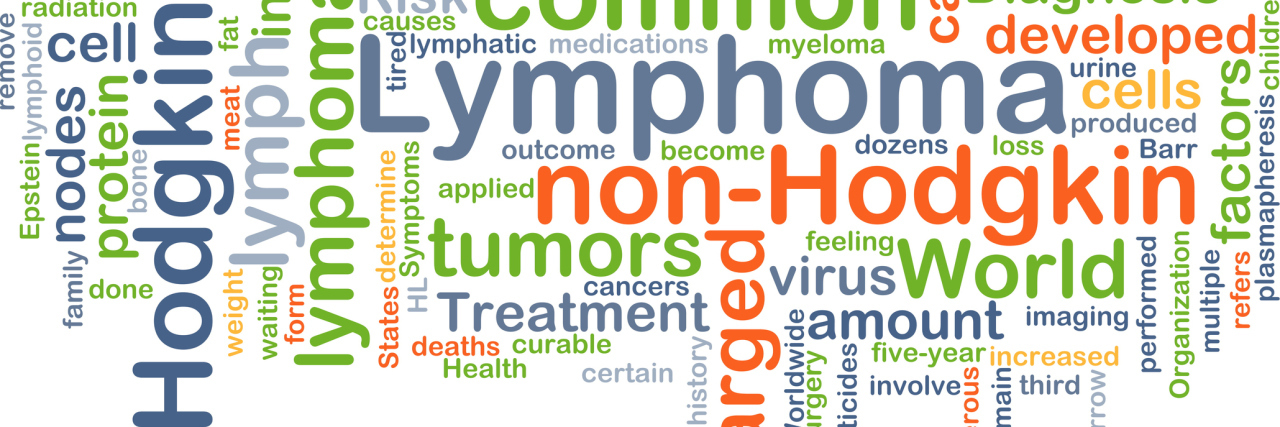It's World Lymphoma Awareness Day. Do You Know Your Sub-Type?
September is Lymphoma Awareness Month, and today (September 15) is World Lymphoma Awareness Day.
Most diseases and conditions have an “awareness” month, week or day, and the purpose is usually to make others aware of the disease: how widespread it is, how to look for signs of the disease, how important it is to raise money for research, or how to contact lawmakers to support efforts to find cures.
All of those things are important parts of awareness.
It always seems strange to me, as a patient, to be encouraged to be “aware” of my own disease. I’ve been living with follicular lymphoma for almost 10 years. I’m aware of it every day.
But I have found, more and more, that lack of awareness is an issue for my fellow lymphoma patients.
Now, I know where that lack of awareness might come from. For many lymphoma patients, it’s easier to just not think about things. That’s especially true for patients with something like follicular lymphoma, a slow-growing but incurable subtype. It can take months, or even years, between treatments, and even between seeing symptoms.
In that case, not knowing might seem to make for a happier life.
I had an oncologist (I have since switched to another one) who told me he had patients with follicular lymphoma who took this attitude. They wanted to come in for six-month appointments, be told everything was OK (as long as it actually was), and then not think about it for another six months.
That’s fine. But the oncologist assumed I wanted that, too.
It was the exact opposite of what I wanted.
I wanted to know as much as I could about my disease. I wanted to be able to have an informed conversation with my doctor. I wanted to be able to give him my opinion about treatments.
I wanted a voice.
That voice only came with knowledge. And with knowledge came more of a feeling of control.
Being diagnosed with cancer, I thought feeling in control was the first thing to go. Knowledge brought some of it back.
So, I have a plea to those who would rather not think about it all. At the very least, do this one small thing: Know your sub-type.
According to the Lymphoma Coalition, there are at least 60 different sub-types of lymphoma. By some counts, it’s as many as 80.
No one has “non-Hodgkin’s lymphoma.” They have Burkett’s lymphoma. Or smoldering adult T-cell lymphoma. Or follicular lymphoma Grade 3b.
And that matters.
Different sub-types have different symptoms, different methods for diagnosing and different treatments.
Follicular lymphoma Grade 3a is a really different thing from follicular lymphoma Grade 3b. That little lower-case letter matters. A lot.
So if you know nothing else, know your sub-type.
I know even that small step can seem hard for many, especially when there can be so much working against you. I remember seeing a segment on a TV show a couple of years ago, featuring a very famous doctor. He was giving statistics about non-Hodgkin’s lymphoma. The statistics were not technically wrong, but they weren’t helpful, either.
Statistics for all non-Hodgkin’s lymphomas lumped together don’t say anything about the 60+ individual types.
I heard the same thing a few weeks after I was diagnosed, from an acquaintance who was a nurse.
And on the health section of a news organization’s website .
And on a government website devoted to cancer.
Earlier this week, I saw the same thing posted to a Facebook group.
It might be comforting to know non-Hodgkin’s lymphoma has a five-year survival rate of 73 percent, but that doesn’t tell me much about my lymphoma.
So start with your sub-type. Ask your doctor what it is — she’ll be able to tell you. That small step is easy, isn’t it?
In fact, the theme of this year’s World Lymphoma Awareness Day from the Lymphoma Coalition is “Small Things Make the Biggest Difference.” You don’t need to become an expert in lymphoma. But begin the process by knowing a little more about your own.
Asking that question might start a great conversation with your doctor. And that could lead to a desire for more knowledge.
Fortunately, there are lots of reputable places online that are easy to find and easy to understand, and can tell you lots more about your sub-type.
Like the Leukemia and Lymphoma Society.
And the Lymphoma Research Fund.
And Patients Against Lymphoma’s Lymphomation.org.
And Lymphoma Canada.
And more — check out the Lymphoma Coalition‘s list of member organizations from around the world.
You might even be inspired to tell your friends and family to be vigilant about checking themselves for cancer. You can tell them about the Know Your Nodes campaign, or encourage them to sign up for Check 15‘s monthly cancer check reminders.
But it has to start somewhere small. Like knowing your sub-type. That really can make the biggest difference.
We want to hear your story. Become a Mighty contributor here.
Thinkstock photo by kgtoh

